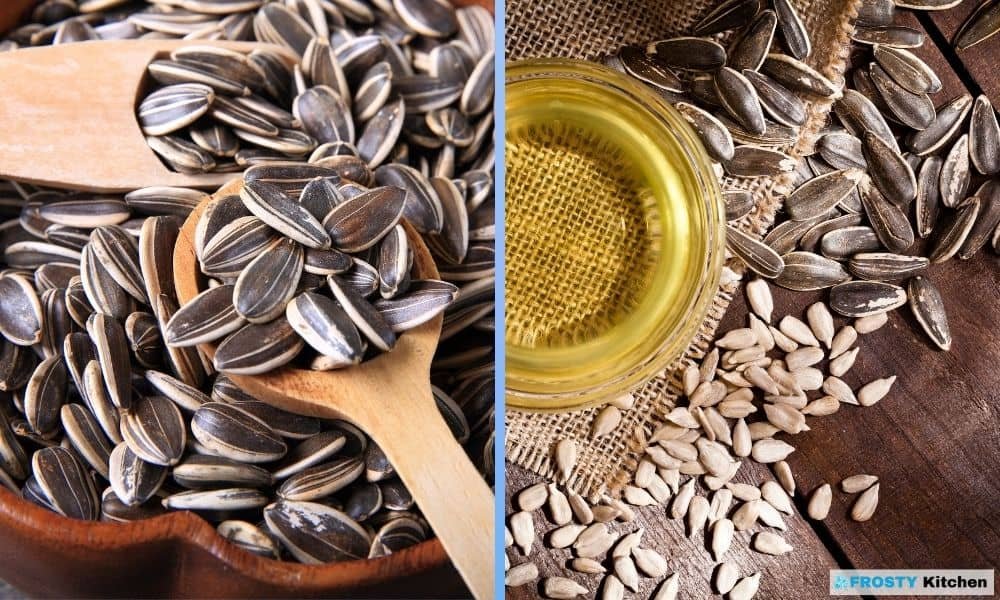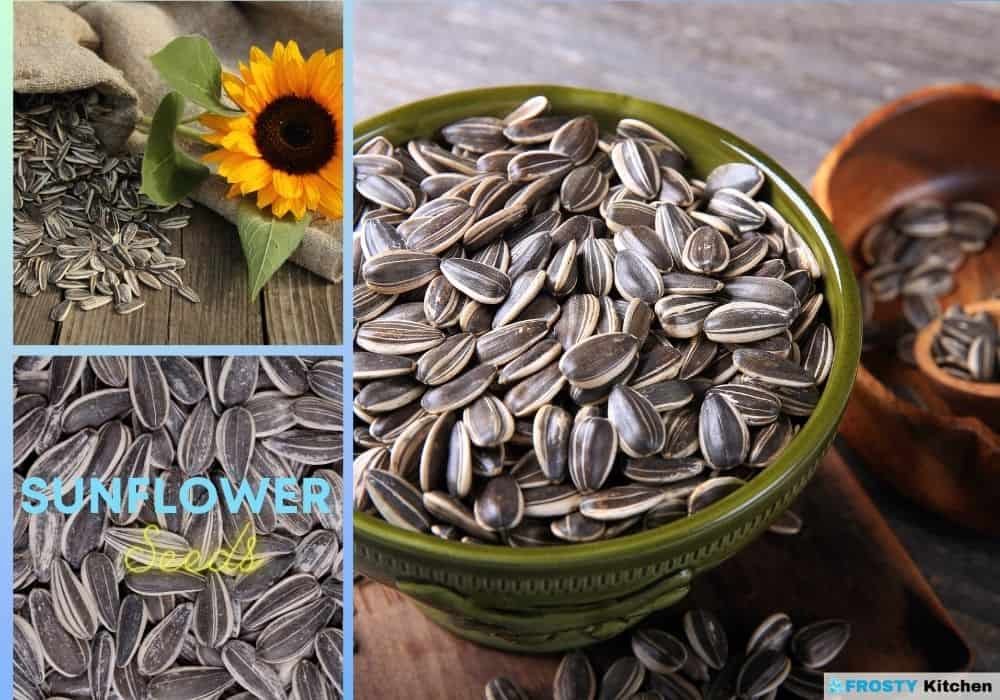Sunflower seeds, with their delightful crunch and nutty flavor, are a popular snack and a versatile ingredient in many dishes. Their nutritional value, coupled with their ability to add a unique texture to recipes, makes them a cherished pantry staple. This guide seeks to shed light on the meticulous process of storing sunflower seeds, ensuring they remain fresh and crunchy for your snacking and culinary adventures.
What are Sunflower Seeds?
Sunflower seeds are the fruits of the sunflower plant (Helianthus annuus), encased in a hard shell that protects the edible seed within. Known for their nutty taste and firm texture, sunflower seeds are a common ingredient in several culinary traditions, often enjoyed roasted or as a crunchy addition to salads, baked goods, and more.
Origin and History
Originating from North America, sunflower seeds have a rich history, with Native Americans utilizing them for their nutritional value and oil content. Over centuries, their popularity spread across the globe, embedding themselves in various culinary traditions.
Nutritional Value
Sunflower seeds are a nutritional powerhouse:
- Rich in Healthy Fats: They contain monounsaturated and polyunsaturated fats that support heart health.
- Protein-Packed: A great source of plant-based protein essential for muscle building and repair.
- Mineral-Rich: High in magnesium, zinc, and selenium which play vital roles in numerous bodily functions.

Importance of Proper Storage for Sunflower Seeds
The crunchiness and nutritional integrity of sunflower seeds can be preserved with proper storage, ensuring their readiness to add that extra zest to your dishes whenever needed.
General Lifespan and Preservation
With appropriate storage, sunflower seeds can maintain their freshness and nutritional value for up to a year or more.
Factors Affecting the Lifespan of Sunflower Seeds
The longevity of sunflower seeds’ freshness can be significantly impacted by various factors. Adequate attention to storage conditions will help in preserving their quality over time.
Temperature
A cool, dry place is preferable for storing sunflower seeds to prevent the oils within them from turning rancid.
Exposure to Light
Sunlight can hasten the deterioration of the oils in sunflower seeds, hence a dark storage location or opaque containers are advisable.
Moisture Content
Moisture can cause sunflower seeds to become moldy or stale, thus ensuring a dry storage environment is crucial.
Packaging
Proper packaging like airtight containers or vacuum-sealed bags can shield sunflower seeds from adverse environmental factors, preserving their quality.
Air Quality
Good air quality with low humidity is instrumental in maintaining the freshness and crunchiness of sunflower seeds.
Signs of Spoiled Sunflower Seeds
Identifying the signs of spoilage in sunflower seeds will ensure you are consuming them while they are still fresh and nutritious.
Appearance
Any signs of mold, discoloration, or changes in texture can indicate spoilage in sunflower seeds.
Odor
A rancid or off-putting smell can be a clear indicator that the sunflower seeds have gone bad.
Preparation for Storage
Ensuring the sunflower seeds are clean, dry, and free from any debris before storage is crucial to maintain their quality.
Picking the Right Packaging/Container
Selecting the right packaging or containers is vital for preserving the crunchiness and nutritional value of sunflower seeds. Airtight containers or vacuum-sealed bags are often the best choices.
Recommended Types of Containers for Storage
Containers such as glass jars with airtight lids, vacuum-sealed bags, or BPA-free plastic containers are suitable for storing sunflower seeds. These containers help shield the seeds from environmental factors like air, moisture, and light, thus preserving their quality and extending their lifespan.
Step-by-Step Guide to Storing Sunflower Seeds
Preserving the crunchiness of sunflower seeds is a straightforward process with the right storage methods.
Method 1: Dry Storage
- Step 1: Ensure the sunflower seeds are clean and completely dry to prevent mold growth.
- Step 2: Transfer the seeds into an airtight container to protect them from moisture and air.
- Step 3: Store the container in a cool, dark, and dry place away from direct sunlight and heat sources.
Method 2: Refrigerator Storage
- Step 1: Ensure the sunflower seeds are clean and completely dry to prevent any moisture-related spoilage.
- Step 2: Transfer the seeds into an airtight, dark-colored or opaque container to shield them from light and moisture.
- Step 3: Place the container in the refrigerator, ensuring it’s away from any strong-smelling foods to maintain the seeds’ flavor integrity.
Frequently Asked Questions
Q1: Can sunflower seeds lose their crunchiness over time?
Yes, over time, and especially if not stored properly, sunflower seeds can lose their crunchiness and become stale. Proper storage in a cool, dark, and dry environment can significantly prolong their freshness.
Q2: How can I extend the shelf life of sunflower seeds?
Storing sunflower seeds in a cool, dark place, and in an airtight container can significantly extend their shelf life and preserve their crunchiness and flavor. Ensuring the seeds are clean and completely dry before storage also plays a vital role in extending their shelf life.
Q3: Can I freeze sunflower seeds to extend their shelf life?
Yes, freezing is a viable option to extend the shelf life of sunflower seeds. However, ensure they are stored in an airtight container to prevent moisture and other contaminants from spoiling them.

